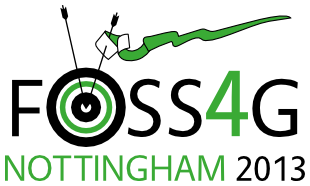Presentation
Boost.Geometry, Introduction And Examples
Barend Gehrels (Self-employed) with Mateusz Loskot (Cadcorp)
12:00 on Thursday 19th September (in Session 9, starting at noon, Sir Clive Granger Building: A31)
Show in Timetable
Description: The first part of the presentation gives an accessible introduction to Boost Geometry. The second part focuses on some algorithms in detail.
Abstract:
Boost.Geometry is a generic library written in C++ providing concepts, geometry types and algorithms developed for solving problems in computational geometry. Boost.Geometry is using modern and portable C++ generic programming techniques and is built upon the foundation of the C++ Standard Library and Boost C++ Libraries. Boost.Geometry follows the OGC Simple Features standard. The Boost Geometry library kernel is designed as agnostic with respect to dimensions, coordinate systems, and types, which makes it generally applicable. A set of geometry models is delivered already by Boost Geometry. This set can be complemented through adaptation of user-defined geometry types, following the concepts defined by Boost Geometry. Boost.Geometry is developed since 2008 by Barend Gehrels and Bruno Lalande, and Mateusz Loskot. The library is peer reviewed by the Boost Community, and accepted into the well-known Boost collection in November 2009. Since 2011 it is released as a standard part of Boost, and immediately available for the majority of C++ programmers. The library is licensed under the (non restrictive) Boost Software License. A Spatial Index, developed by Adam Wulkiewicz, will be released as a standard part of the library in the next release of Boost. The Boost.Geometry library can, because it is a concept based library, following OGC Simple Features, easily be fit into for example Spatial Databases or existing projects using (probably legacy) Object Models. The presentation is dedicated to developers who are interested in receiving practical overview to the Boost Geometry library. The first part of the presentation gives an accessible introduction to Boost Geometry. The second part focuses on some algorithms in detail.
